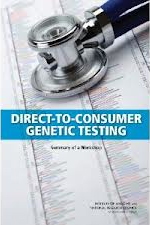Biobanks are used to process and store collections of human biological tissue
specimens and related health data. These biospecimens are important in
increasing the understanding of the many aspects of disease, including disease
risk prediction, prevention, identification, diagnosis, and treatment.
As noted previously, there are numerous ethical, social, and legal considerations
that must be taken into account concerning biobanks including, but not limited
to, informed consent, confidentiality, secondary use of sample data over time,
return of results, and data sharing (Hawkins, 2010).
Although there is strong societal support for innovative medicine like genomics
and pharmacogenomics, they cause major concern around potential loss of privacy
and social discrimination (Hawkins, 2010).
Additional considerations surround the collection, use, and storage of
biospecimens.
For example:
- How will donors be protected if there is accidental release of information?
- Once a sample is donated, who has the right to ownership?
- What occurs if a biobank closes or is bought out by another company?
Though these important questions remain unanswered, technological advances in
personalized medicine will continue to increase the need for biospecimens.





